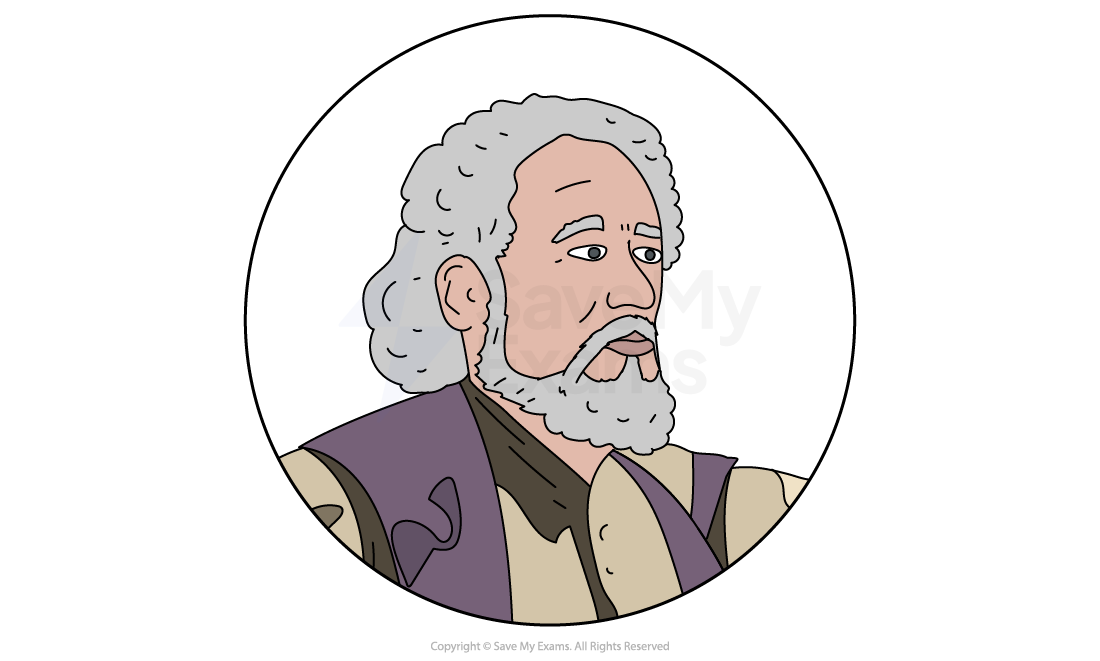The Tempest: Character Quotations (AQA GCSE English Literature): Revision Note
Exam code: 8702
Your exam question on The Tempest will ask you to respond to a task about theme or character. This means you should know how William Shakespeare presents his characters in ways that deliver a message or explore a theme (idea). The question asks you to consider aspects such as these:
Themes
Characters
Relationships between characters
Examiners reward answers that analyse how characters represent an idea or theme. It is best to know some key quotes from characters from the start of the play, from the middle, and from the end. This means you will avoid writing a character description and, instead, focus on character (and theme) development.
Here we will examine some important quotations from the following key characters:
Prospero
Ariel
Caliban
Miranda
Examiner Tips and Tricks
Examiners say that it is best to use short quotes that support your argument rather than using long pieces of dialogue or quotes that do not explore the character or theme in the question.
Using shorter quotes has two benefits:
You can more easily embed the key word or phrase into your analysis
You can see patterns across the character’s speech, or zoom into a technique
By embedding short sections of quotations, you will better focus on analysing the impact of the language, or the literary or dramatic technique. Look for things like the character’s tone of voice, their typical speech patterns, the dynamic of the scene, and how an audience would respond.
That’s why we’ve included a “key word or phrase” from every one of our longer quotations to help you memorise only the most important parts of each quotation.
Prospero
“Thy father was the Duke of Milan and
A prince of power”
— Prospero, Act 1 Scene 2
Prospero  | Key word or phrase to memorise: “prince of power” | What the quotation means: Prospero, as former Duke of Milan, considers himself like monarchy, and with much influence | Theme: Loss and betrayal |
| |||
“Knowing I loved my books, he furnish’d me
From mine own library with volumes that
I prize above my dukedom”
— Prospero, Act 1 Scene 2
Prospero  | Key word or phrase to memorise: “library” and “prize above my dukedom” | What the quotation means: Prospero tells Miranda that Gonzalo gave him his books when they left Milan as they were more valuable than material wealth | Theme: Power and control |
| |||
“These our actors,
As I foretold you, were all spirits and
Are melted into air, into thin air:”
— Prospero, Act 4 Scene 1
Prospero  | Key word or phrase to memorise: “Spirits” and “melted into air, into thin air” | What the quotation means: Prospero tells Ferdinand that everything is an illusion, that the characters on the island (and in the play) are “spirits” | Theme: Magic and illusion |
| |||
Ariel
“the fire and cracks
Of sulfurous roaring the most mighty Neptune
Seem to besiege and make his bold waves tremble,”
— Ariel, Act 1 Scene 2
Ariel  | Key word or phrase to memorise: “Make his bold waves tremble” | What the quotation means: Ariel reports on the storm and shipwreck: the god of lightning and the sea god “Neptune” overwhelm (“besiege”) the ship and ‘frighten’ the big waves | Theme: Magic and illusion |
| |||
“Is there more toil? Since thou dost give me pains,
Let me remember thee what thou hast promised,”
— Ariel, Act 1 Scene 2
Ariel  | Key word or phrase to memorise: “Toil” and “pains” | What the quotation means: Ariel, frustrated he has to do more work (“toil”) for Prospero, reminds him of his promise to free him | Theme: Power and control |
| |||
“You are three men of sin, whom Destiny,
That hath to instrument this lower world
And what is in ’t, the never-surfeited sea
Hath caused to belch up you;”
— Ariel, Act 3 Scene 3
Ariel  | Key word or phrase to memorise: “Destiny” and “never-surfeited sea” | What the quotation means: Ariel appears to Alonso, Sebastian, and Antonio, explaining that fate, which controls their world, caused the sea to ‘burp’ them up as punishment for betraying Prospero | Theme: Loss and betrayal |
| |||
Caliban
“and then I loved thee,
And showed thee all the qualities o’ th’ isle,
The fresh springs, brine pits, barren place and/fertile:
Cursed be I that did so!”
— Caliban, Act 1 Scene 2
Caliban  | Key word or phrase to memorise: “Then I loved thee” and “Cursed be that I did so!” | What the quotation means: Caliban tells Prospero that he once loved him, and that he regrets helping him survive on the island | Theme: Loss and betrayal |
| |||
“Sometime am I
All wound with adders who with cloven tongues
Do hiss me into madness.”
— Caliban, Act 2 Scene 2
Caliban  | Key word or phrase to memorise: “All wound with adders” and “hiss me into madness” | What the quotation means: Caliban describes himself as wrapped in forked-tongued snakes (“adders”) that drive him mad | Theme: Power and control |
| |||
“Be not afeared; the isle is full of noises,
Sounds and sweet airs, that give delight and hurt not.”
— Caliban, Act 3 Scene 2
Caliban  | Key word or phrase to memorise: “Sounds, and sweet airs” and “delight and hurt not” | What the quotation means: Caliban tells Stephano not to be afraid of the island, and that the noises he hears will not harm him | Theme: Magic and illusion |
| |||
Miranda
“O, the cry did knock
Against my very heart. Poor souls, they perish’d”
— Miranda, Act 1 Scene 2
Miranda  | Key word or phrase to memorise: “The cry did knock/Against my very heart” | What the quotation means: Miranda, distressed about the sailors she thinks have died (“perish’d”), tells Prospero that she ‘heard’ their cries in her own heart | Theme: Power and control |
| |||
“O brave new world,
That has such people in't!”
— Miranda, Act 5 Scene 1
Miranda  | Key word or phrase to memorise: “brave new world” | What the quotation means: Miranda, excited to have met and married Ferdinand, and about to leave the island, expresses her delight at the adventure | Theme: Magic and illusion |
| |||
Source
https://shakespeare.mit.edu/tempest/full.html (opens in a new tab)

Unlock more, it's free!
Was this revision note helpful?
